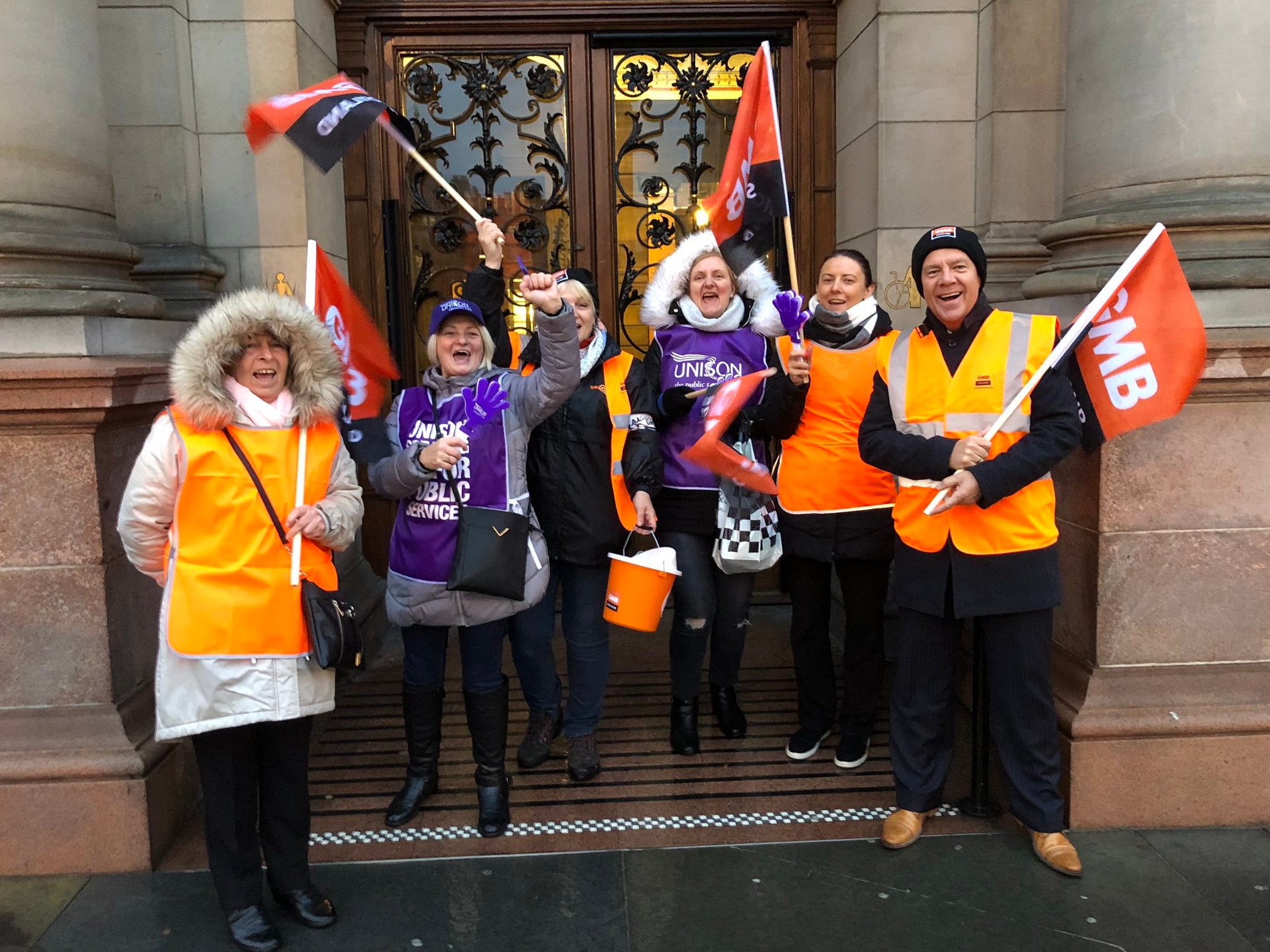Women win equal pay dispute after 12-year battle with Glasgow City Council
Some are said to have been paid up to £4,000-a-year less than their male counterparts

Thousands of female council workers in Glasgow are set to receive payouts unions estimate could reach a total of more than £500m after a 12-year dispute over equal pay has finally been settled.
Hundreds of schools and nurseries in Glasgow were closed and homecare services disrupted as more than 8,000 council workers staged what was deemed Britain’s biggest ever strike over equal pay last October.
The walkout was sparked by frustration at the “lack of progress” on equal pay claims and followed years of legal disputes between unions and Glasgow City Council (GCC) over claims staff in female-dominated roles, such as cleaning, were underpaid.
Some women are said to have been paid up to £4,000-a-year less than their male counterparts.
GCC and the equal pay claimant group, represented by Action4Equality Scotland, and the Unison, GMB and Unite unions, confirmed on Thursday they had reached an agreement in principle to a package of payments to resolve the unequal pay claims.
The council adopted the workforce pay and benefit review (WPBR), implementing its job evaluation-based pay and grading system in 2006 with the intention of making sure men and women got equal pay for jobs of the same value.
But some women claim they were paid £3-an-hour less than men in roles which were similarly graded. In May 2017, the Court of Session ruled the WPBR discriminated against female workers.
The council decided it would not appeal the decision of the court and would commit to settling the outstanding equal pay claims and bringing in a new system.
After decades of Labour rule, the SNP became the biggest party on the GCC in the same month. In January 2018, the council said it hoped to resolve the dispute via negotiations.
Susan Aitken, leader of Glasgow city council, said she was “delighted” the “historic injustice” had been resolved.
“My commitment to resolving this issue has never wavered and I have never needed to be convinced of the case for equality,” she said.
“After a decade of obstruction and inaction, in a relatively short space of time we have now reached agreement which delivers the pay justice these women have long fought for.”
The GMB organiser, Rhea Wolfson, described the announcement as a “hugely significant moment”.
Ms Wolfson added: “This has been hard won and wouldn’t have happened if the claimants hadn’t taken decisive action last October. The strike succeeded in its aim of making the council take these claims seriously. It was also a spectacular event that put equal pay for low-paid women on the national agenda.”
The deal will have to be approved by both council members and claimants before the payments can be handed out. The council will also have to finish raising the funds to meet the combined cost of the claims.
Mandy McDowall, of Unison, hit out at the inaction on the historic claims ahead of the strike last autumn.
She said: “It is a modern-day scandal that nearly 50 years on from the Equal Pay Act being introduced, we find ourselves standing alongside thousands of women who are being discriminated against by one of the UK’s largest councils.
“These women are the lifeblood of Glasgow, they carry out vital roles across the city – cleaning, caring, educating and looking after some of the most vulnerable people in our society. They are the cogs that keep our city turning, yet their roles remain chronically undervalued.
“Strike action isn’t a decision these women have taken lightly, but after months of empty promises they have been left with no choice.”
Join our commenting forum
Join thought-provoking conversations, follow other Independent readers and see their replies
Comments